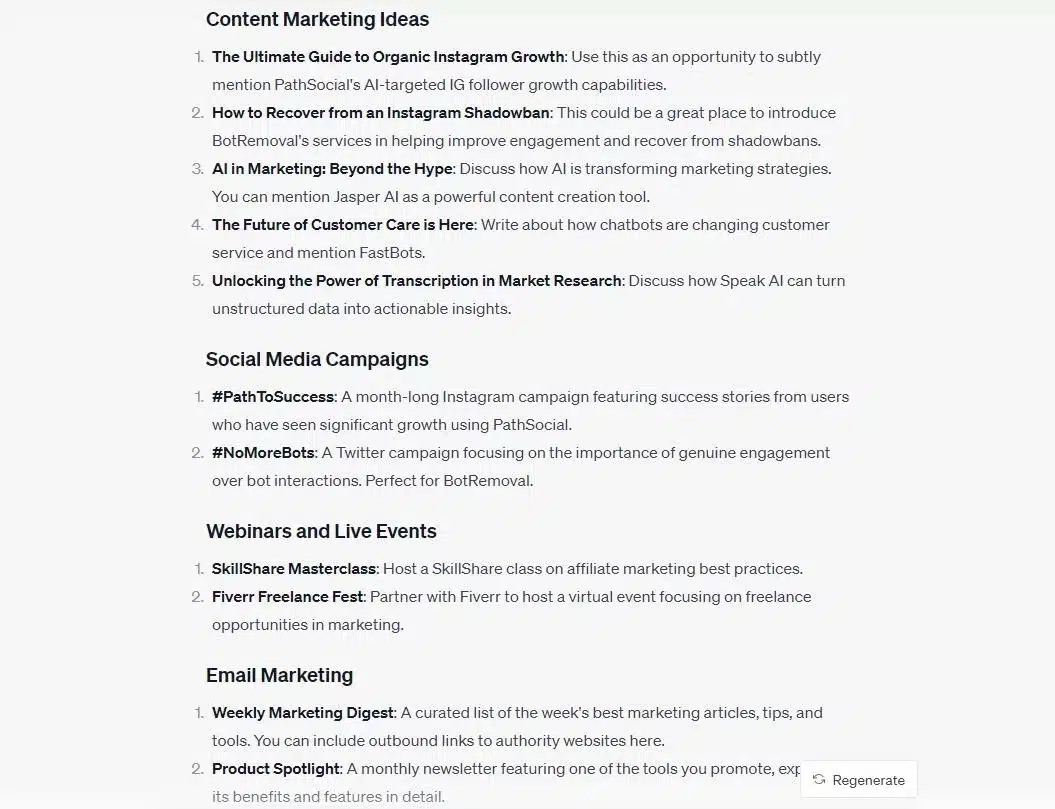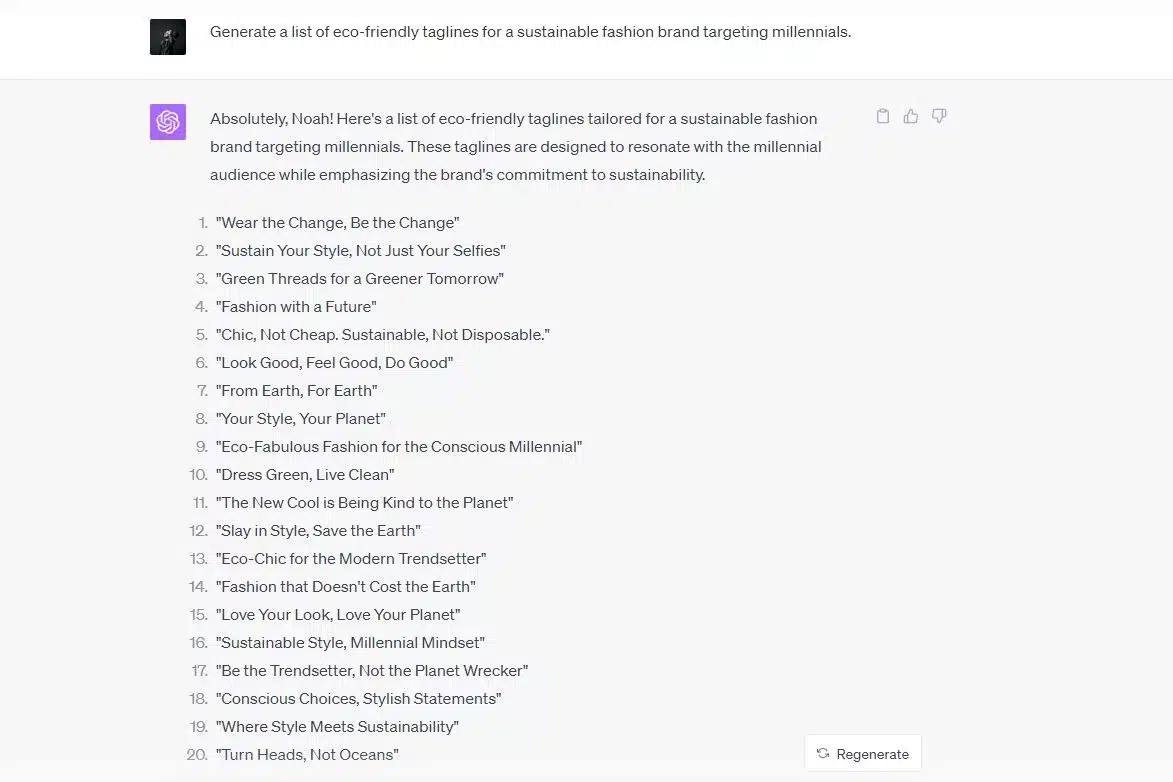Master the Art of Prompt Engineering with ChatGPT for Better AI Responses
Ever felt like you’re playing a game of hit or miss with ChatGPT?
You’re not alone. Many people find themselves in a similar situation, wondering why they’re not getting the most out of this powerful tool.
The game-changer you’re missing is prompt engineering. This isn’t just another tech jargon; it’s the linchpin that can turn your ChatGPT interactions from “meh” to “wow.”
By the end of this article, you’ll be a prompt engineering maestro, capable of extracting the most nuanced responses from ChatGPT.
You’ll also gain insights into the tool’s limitations and how to work around them.
If you’ve ever used Jasper AI for content creation, you’ll find that understanding prompt engineering can significantly enhance your experience with other AI tools as well.
So, if you’re looking to become a pro at interacting with AI, this article is your go-to guide.
Intrigued? Let’s get started.
The Art and Science Behind Prompt Engineering
You wouldn’t ask a sommelier for “just some wine,” right?
Similarly, prompt engineering is about asking ChatGPT with precision. It’s not merely about posing a question; it’s about framing that question to get exactly what you need.
This is where the art of specificity and the science of context come into play.
The better you get at this, the more you’ll feel like ChatGPT is that friend who just “gets you.”
But how do you get there?
It starts with understanding the mechanics of language and context. You need to be as specific as possible.
For example, instead of asking,
“Tell me about coffee,”
you could ask,
“What are the health benefits and drawbacks of drinking black coffee daily?”
The latter will yield a more focused and useful response.
How ChatGPT Thinks
ChatGPT isn’t your run-of-the-mill text generator. It employs something called the “Theory of Mind” to get into the nitty-gritty of what you’re asking.
This is why it can even empathize with you to some extent. It’s like having a multilingual Sherlock Holmes on your computer, deducing what you mean from the way you ask.
But what does this mean for you?
It means that the more you understand how ChatGPT thinks, the better your prompts will be.
You’ll be able to craft questions that get right to the point, saving you time and yielding better results.
This is especially useful for marketers and content creators who rely on precise information.
ChatGPT: The Empathetic Code
ChatGPT is more than lines of code; it’s a learning entity.
It’s not going to pass the Turing test anytime soon, but it’s getting better at understanding human nuances. It’s like a sponge, soaking up the data you feed it to understand not just the words but the emotions behind them.
This makes it a surprisingly effective tool for those who know how to use it.
For instance, if you’re a marketer aiming to create emotionally resonant content, understanding how ChatGPT can “empathize” can be a game-changer.
It’s not as advanced as Jasper AI in content creation, but it’s getting there.
Prompt Engineering in Action
Let’s get practical. Did you know you can use ChatGPT as a makeshift Google search? Or that marketers can leverage it for content creation?
If you’re keen on diving deeper, SkillShare has some killer courses that can make you a prompt engineering ninja.
The applications are not just limited to answering questions or generating text; you can use it for a variety of tasks.
Example: Crafting a Marketing Campaign
Imagine you’re a marketer tasked with creating a new campaign to promote a sustainable fashion brand.
You could use ChatGPT to brainstorm ideas, generate taglines, or even write portions of the copy.
However, instead of asking ChatGPT,
“Give me some marketing ideas,”
you could engineer your prompt to be more specific:
“Generate a list of eco-friendly taglines for a sustainable fashion brand targeting millennials.”
The latter prompt is more likely to yield useful, targeted results that you can directly incorporate into your campaign.
It narrows down the focus to eco-friendly taglines and specifies the target demographic, allowing ChatGPT to generate more relevant and creative options.
This is prompt engineering in action, and it can make a significant difference in the quality of the output you receive.
For those interested in mastering the art of prompt engineering, SkillShare offers courses that delve into the intricacies of AI and how to craft effective prompts.
These courses can equip you with the skills needed to utilize ChatGPT and other AI tools to their fullest potential, whether you’re in marketing, content creation, or any other field that could benefit from AI assistance.
Limitations of ChatGPT
ChatGPT isn’t perfect.
It can mimic human-like responses but can’t replicate human wisdom or emotional depth.
It’s also not the best at juggling multiple tasks or generating long-form content.
But hey, even humans aren’t great at multitasking, so let’s cut it some slack. The key is to know these limitations so you can work around them.
For example, if you’re looking for long-form content, you might be better off using a specialized tool like Jasper AI.
Knowing what ChatGPT can and can’t do will help you use it more effectively.
Conclusion
So, are you ready to turn your ChatGPT interactions from a game of chance to a science?
Mastering prompt engineering is like getting a backstage pass to ChatGPT’s full capabilities.
As you get better at it, you’ll find that the tool becomes more versatile and useful.
So, why not start your journey into the fascinating world of prompt engineering today?
FAQ
What is Prompt Engineering?
Prompt engineering is the practice of crafting specific, context-rich questions or commands to input into ChatGPT. The goal is to get the most accurate and useful response from the AI.
How Does Prompt Engineering Improve ChatGPT Interactions?
By asking more specific and contextually rich questions, you guide ChatGPT to provide answers that are more aligned with what you’re actually looking for. It’s like fine-tuning your queries for better results.
Can I Use Prompt Engineering for Other AI Tools?
Absolutely! While this article focuses on ChatGPT, the principles of prompt engineering can be applied to other AI tools, like Jasper AI, especially when you’re looking for long-form content.
Are There Courses on Prompt Engineering?
Yes, SkillShare offers courses that cover the nuances of AI and prompt crafting. These courses can help you become proficient in prompt engineering, enhancing your interactions with AI tools.
What Are the Limitations of ChatGPT?
While ChatGPT is powerful, it has its limitations, such as not being as adept at generating long-form content or multitasking. Knowing these limitations can help you craft better prompts.
Can Prompt Engineering Help in Professional Settings?
Definitely. Marketers, content creators, and professionals in various fields can benefit from mastering prompt engineering. It can help in generating more targeted and effective content, among other tasks.
How Does ChatGPT Understand Prompts?
ChatGPT employs the “Theory of Mind” to understand the context and nuances of the prompts. This allows it to provide answers that are not just accurate but also contextually relevant.
Is ChatGPT Good for Multilingual Interactions?
Yes, ChatGPT can understand and respond in multiple languages, making it a versatile tool for multilingual queries. However, the quality of the response may vary based on how well the prompt is engineered.



